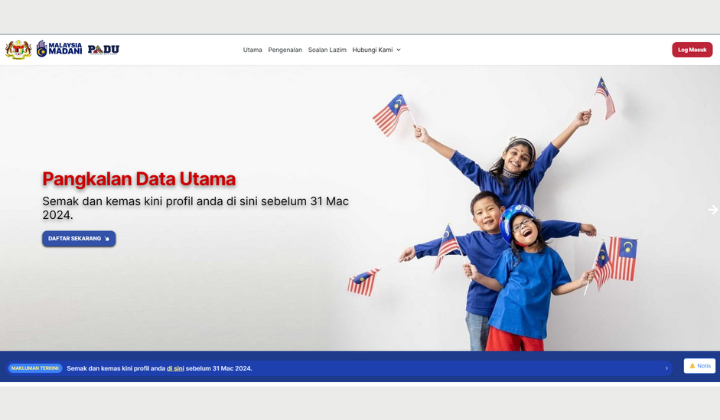Today, Prime Minister Anwar Ibrahim introduced the PADU initiative, officially launching the Central Database Hub, with the aim of enhancing the efficient distribution of targeted subsidies.
Malaysians are urged to enrol in the PADU database to authenticate and update their socio-economic information, with the government commencing the registration process for an initial three-month period (until 31 March 2024) starting today, according to FMT news report.
The goal of the system is to become the most comprehensive government-established database. Anwar emphasised that this initiative is crucial for ensuring a more equitable distribution of subsidies. He highlighted that without digitising subsidy delivery through PADU, the affluent would disproportionately benefit from such programs.
Furthermore, Anwar underscored that PADU aligns with the country’s broader initiatives to digitise systems, aiming to reduce costs and minimise wastage.
In the future, PADU is set to integrate with MyDigital ID, the national digital identification system. Administered by the statistics department, PADU currently encompasses nearly 300 types of data under the federal government, with plans to incorporate data from state and local governments in the future.
It’s important to note that the database will not be linked to bank information systems, as this would violate the Financial Services Act.
Economy Minister Rafizi Ramli highlighted that this strategy will enable the government to move away from the traditional B40, M40, and T20 classifications. Instead, the focus will shift towards providing assistance based on well-defined criteria.
Rafizi explained that there are 39 variables that require updating to enhance the targeting mechanism, strengthen delivery channels, and facilitate more effective program implementation.
He emphasised the significance of self-updating, stating that it will ensure the authenticity of information and data, accurately reflecting the current status of individuals in the PADU database.










